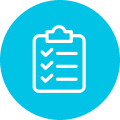Sleep Disorder
A sleep disorder disrupts restful sleep, leading to daily dysfunction and a higher risk of chronic conditions. Signs include trouble falling or staying asleep, irregular breathing, or daytime sleepiness. Discover how these disorders are diagnosed and treated for better sleep.
what IS IT?
Understanding Sleep Disorders
Sleep disorders are conditions that disrupt your ability to get sufficient, restful sleep and maintain alertness during the day. There are more than 80 recognised sleep disorders that can affect:
Sleep Quality
Sleep quality refers to how well and restfully one sleeps.
Sleep Timing
When you fall asleep and how long you stay asleep.
Sleep Quantity
The amount of sleep and wakefulness you experience (duration).
Occasional sleep difficulties are common, but you may be dealing with a sleep disorder if:
- You frequently struggle to fall or stay asleep.
- Despite getting at least seven hours of sleep, you feel tired throughout the day.
- Your daytime performance and activities are negatively impacted by poor sleep.
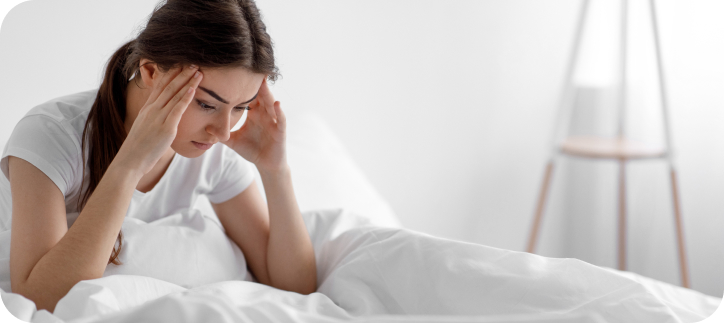
TYPES
Types of Sleep Disorders
There are more than 80 recognised types of sleep disorders, with some of the most common being:
Fatigue
Fatigue refers to a constant feeling of tiredness or lack of energy, which can be a symptom of a sleep disorder or other underlying health conditions.

Insomnia
Insomnia is the difficulty in falling asleep, staying asleep, or waking up too early and not being able to go back to sleep, leading to inadequate rest and daytime fatigue.

Narcolepsy
Narcolepsy is a neurological disorder that causes sudden and uncontrollable episodes of deep sleep during the day, often coupled with muscle weakness or paralysis.
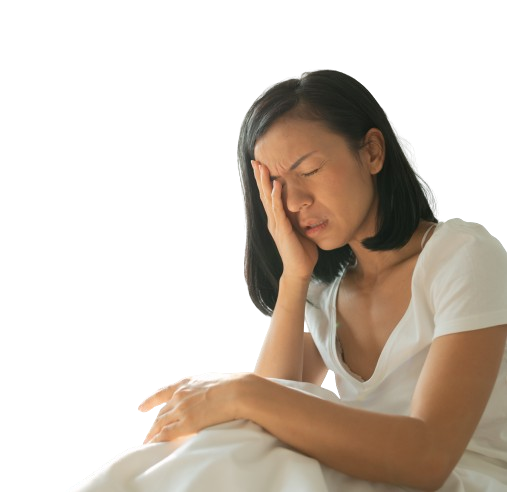
Sleep Apnea
Sleep apnea is a condition where breathing repeatedly stops and starts during sleep, often leading to loud snoring, interrupted sleep, and excessive daytime sleepiness.

Twitching Eye
Twitching eye, or eyelid myokymia, involves involuntary, repetitive spasms of the eyelid muscles, which can be associated with stress, fatigue, or lack of sleep
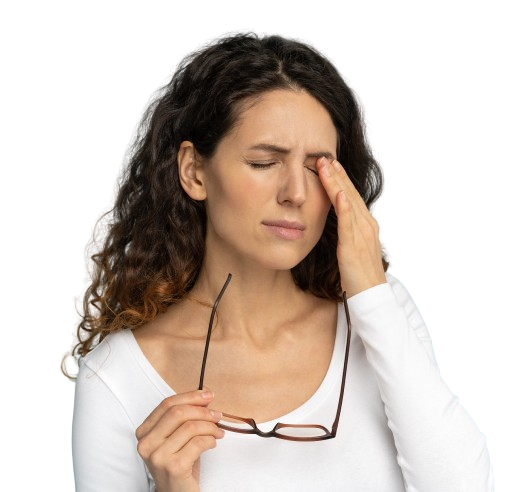
Excessive Sleepiness
Excessive sleepiness is characterised by an overwhelming urge to sleep during the day, often despite getting adequate sleep at night. It can affect daily activities and overall well-being.
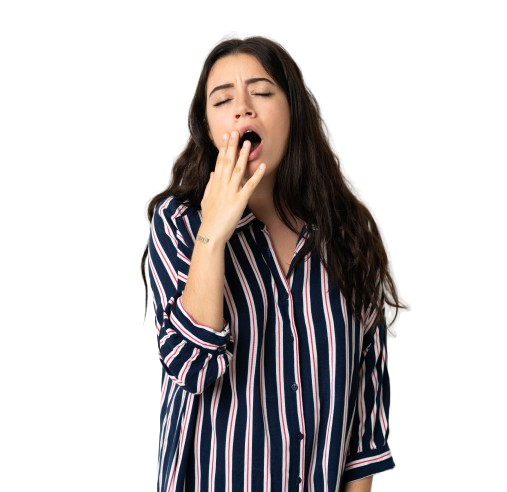
Parasomnias
Parasomnias include abnormal behaviors or experiences during sleep, such as sleepwalking, night terrors, and sleep talking.
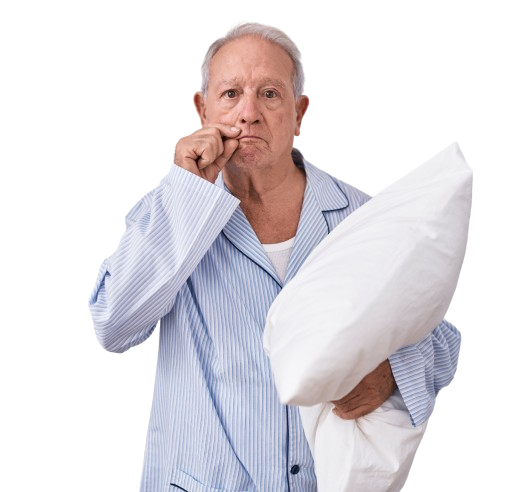
Restless Legs Syndrome
Restless Legs Syndrome (RLS) is a condition characterised by an uncontrollable urge to move the legs, typically in the evening, which can interfere with falling or staying asleep.
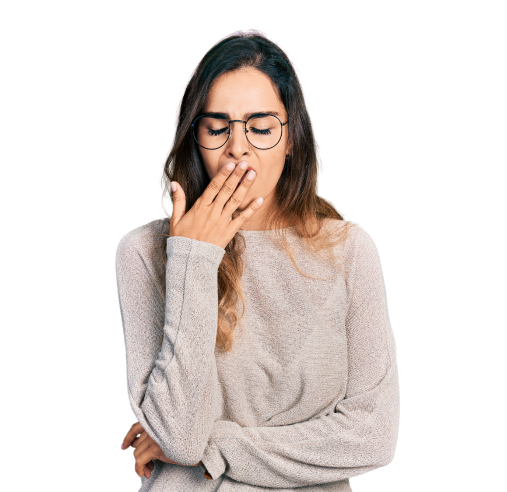
Shift Work Disorder
Shift Work Disorder occurs in individuals who work non-traditional hours (such as night shifts), disrupting their sleep patterns and leading to insomnia or excessive sleepiness.
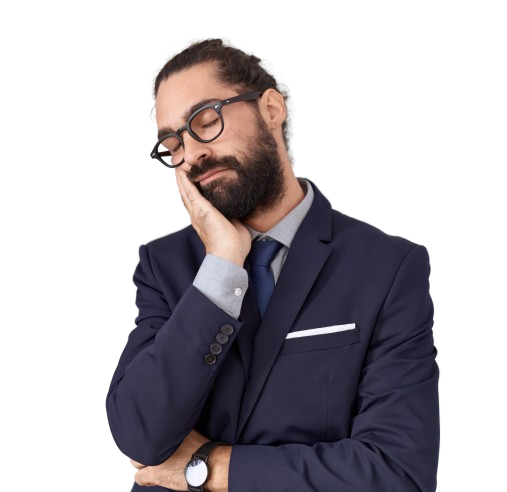
Common Signs
Symptoms of Sleep Disorders
The symptoms of sleep disorders can vary depending on the type
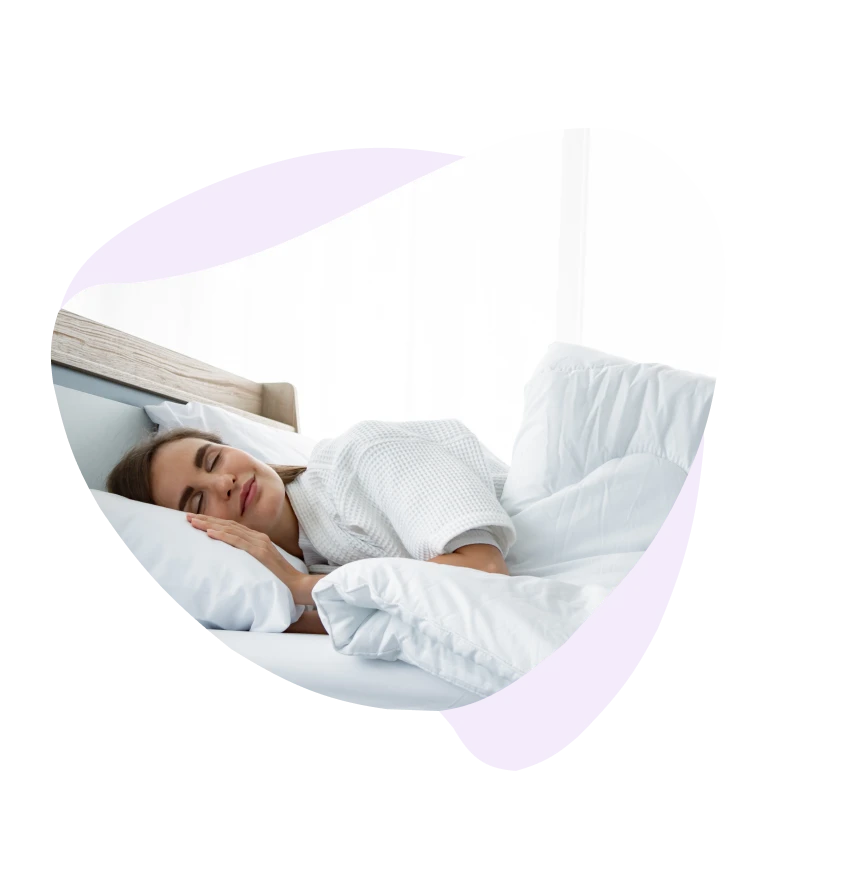
Common signs include:
Difficulty Falling Asleep
Taking more than 30 minutes to fall asleep on a regular basis.
Trouble Staying Asleep
Waking up frequently during the night and struggling to fall back asleep.
Breathing Issues During Sleep
Snoring, gasping, or choking while sleeping.
Restlessness
Feeling the need to move when trying to relax, with movement providing relief.
Sleep Paralysis
Feeling unable to move upon waking.
During the day, lack of adequate sleep can lead to additional symptoms, such as:
Daytime Sleepiness
Frequent daytime naps or falling asleep during routine tasks.
Behavioral Changes
Difficulty focusing or paying attention.
Mood Changes
Irritability and trouble managing emotions.
Performance Issues
Difficulty meeting deadlines or performance expectations at work or school.
Accidents or Falls
Increased likelihood of accidents or falls due to fatigue.
If you’re experiencing these symptoms and they interfere with your daily activities, it’s important to consult a healthcare provider.
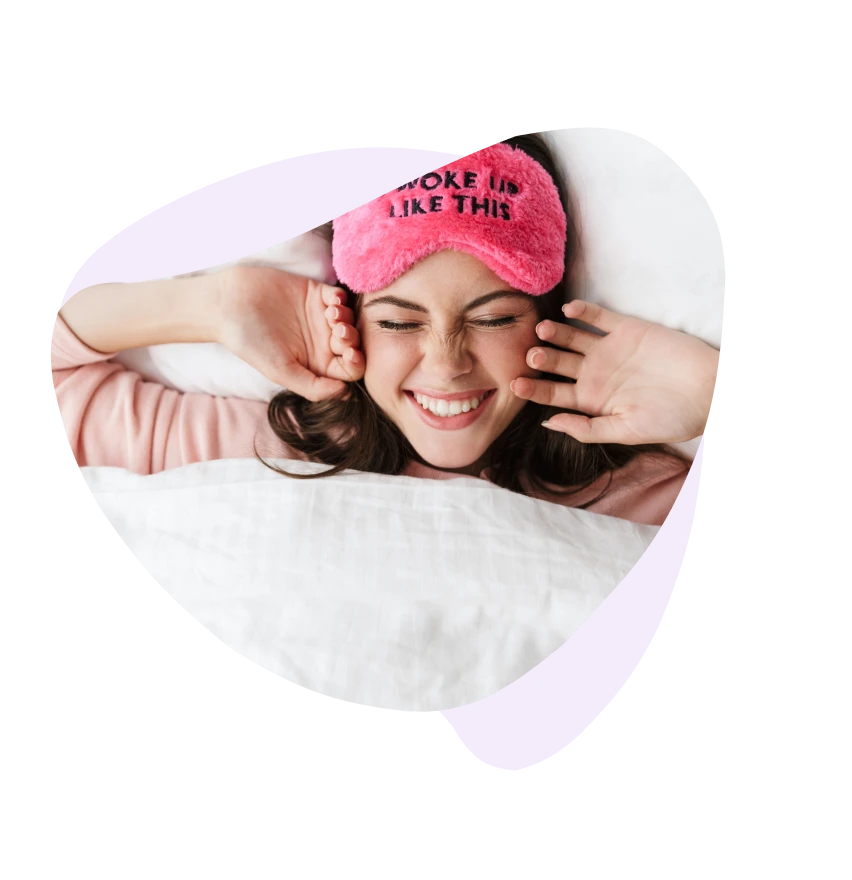

Causes of Sleep Disorders
Sleep disorders arise from disruptions to your body’s natural sleep-wake cycle. The specific causes can vary depending on the type of sleep disorder and may include:
- Medical Conditions
Symptoms related to heart disease, asthma, pain, or nerve conditions.
- Mental Health Conditions:
Symptoms of depression, anxiety, or other mental health disorders.
- Genetic Factors
Genetic mutations that predispose individuals to sleep disorders.
- Medication Side Effects
Sleep disturbances as a side effect of certain medications.
- Shift Work
Working night shifts that disrupt natural sleep patterns.
- Substance Use
Consumption of caffeine, alcohol, or other substances before bedtime.
- Chemical Imbalances
Low levels of certain chemicals or minerals in the brain.
Diagnosis and Tests
How is a Sleep Disorder Diagnosed?
There is no single test to diagnose a sleep disorder, but the NHS provides a sleep self-assessment form that can help evaluate the quality of your sleep.
This form contains a series of questions aimed at understanding your sleep patterns. If the self-assessment results indicate poor sleep quality, it is advisable to consult your GP, who can assist in diagnosing the sleep disorder. If the diagnosis remains uncertain and your sleep issues continue to impact your daily life, a more thorough evaluation at a specialist sleep center may be recommended.
Treatment and Self-help for Sleep Disorder
Sleep Disorders can often be treated by adjusting your daily and bedtime routines. Here are some tips:
- Sleep Hygiene
Sleep only as much as needed to feel rested, then get out of bed
- Stay Active
Regular exercise can improve sleep but avoid intense activities close to bedtime.
- Eat Light
Avoid large meals and too much liquid before bed to prevent discomfort and frequent trips to the bathroom.
- Check Medications
Some meds may affect sleep; consult your doctor and check for stimulants in over-the-counter products.
- Limit Naps
If you need a nap, keep it under 30 minutes and avoid napping after 3 p.m.
- Reduce Caffeine, Alcohol, and Nicotine
These can disrupt sleep, so limit or avoid them, especially in the evening.
At Bedtime;
- Create a Sleep-Friendly Environment
Use your bedroom only for sleep and sex, keep it dark, quiet, and cool. Hide clocks to avoid stress.
- Relax
Develop a calming bedtime routine—take a warm bath, read, or practice relaxation techniques.
- Don’t Force Sleep
If you can’t sleep, get up and do something relaxing until you feel drowsy.
- Get Up When You’re Awake
Sleep only as much as needed to feel rested, then get out of bed
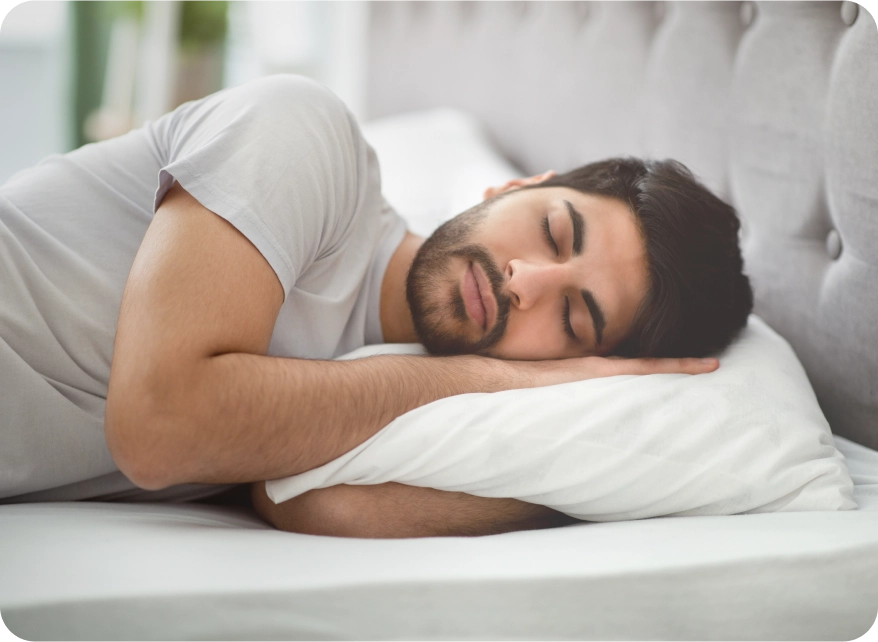
Sleep isn’t just rest; it’s a necessity. If you’re battling sleepless nights, it could be a sign of a deeper issue. Don’t let sleep disorders silently steal your health—take control now.

Treatment
Treatment for Sleep Disorder
CBT-I is a highly effective, first-line treatment specifically designed for sleep disorders. It helps individuals identify and modify thoughts, feelings, and behaviors that contribute to sleep difficulties. Techniques may include relaxation strategies such as breathing exercises and stimulus control therapy, which focuses on strengthening sleep cues and reducing triggers that cause wakefulness.
In some cases, medications may be prescribed to help manage sleep disorders. This could include sleeping pills, alerting agents, or supplements like melatonin. Always consult with a healthcare provider before starting or changing any medication.
For sleep disorders such as sleep apnea, a CPAP (Continuous Positive Airway Pressure) machine or a neurostimulator may be recommended to maintain open airways during sleep and ensure consistent breathing.
Light therapy can be effective for sleep disorders related to disruptions in the body’s natural sleep-wake cycle, such as shift work disorder or non-24-hour sleep-wake disorder. This therapy involves exposure toSymptoms related to heart disease, asthma, pain, or nerve conditions. specific types of light at certain times to help regulate sleep patterns.
Your healthcare provider will recommend the most appropriate treatment based on your specific situation. They will also discuss any potential side effects or considerations before starting treatment to ensure the best possible outcome.
Medical Cannabis & Sleep Health
Sleep Disorders and Medical Cannabis
Improves Sleep Quality
Cannabis, especially strains with THC and CBD, interacts with the body’s endocannabinoid system to enhance sleep quality.
Reduces Insomnia
It can help individuals fall asleep faster and stay asleep longer, reducing nighttime awakenings.
Eases Pain and Anxiety
Cannabis’s pain-relieving and anxiety-reducing properties can alleviate factors that disrupt sleep.
Regulates Sleep-Wake Cycles
It can assist in normalising disrupted sleep patterns, such as in shift work disorder.
*Before using medical cannabis, consult with a healthcare provider to determine the right strain, dosage, and method
FAQs
Frequently Asked Questions
Have questions? Our FAQ section covers all you need to know about the sleep disorder, helping you make informed decisions with ease.
The duration of sleep disorders varies. Some people may find relief within weeks or months with the right treatment, while others may need to manage their condition throughout their lifetime. It’s best to discuss your specific situation with a healthcare provider to understand your outlook.
If you’re having persistent trouble with sleep, such as difficulty falling asleep, staying asleep, waking up too early, or experiencing unexplained daytime sleepiness or tiredness, it’s important to consult a healthcare provider.
Cannabis may help you fall asleep faster and can increase the time spent in non-rapid eye movement (NREM) sleep, which is restorative. However, it may decrease time spent in rapid eye movement (REM) sleep, which is when dreaming, emotional processing, and memory formation occur. Reduced REM sleep can be beneficial for people with PTSD, as it may reduce nightmares.
Yes, lifestyle changes can improve sleep disorders. Maintaining a regular sleep schedule, reducing caffeine and alcohol, and creating a relaxing bedtime routine can help. Regular exercise and stress management techniques like meditation are also beneficial. However, for more severe cases, it’s best to consult a healthcare provider.


